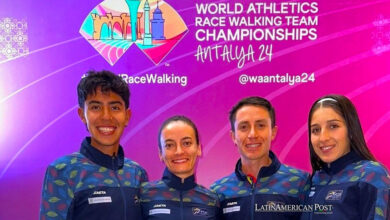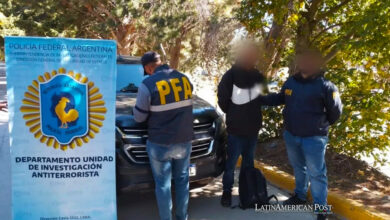Social protest in the cinema: how has it been represented?
A series of films that allow you to get closer to the problems that have led the citizens of Colombia to persistently protest.

We see the importance of cinema as a tool for social denunciation, which manages to communicate to the viewer the reality that exists in a country, in this case what Colombia is suffering. Photo: YT-cameo
LatinAmerican Post | María Carolina Rivero
Listen to this article
Leer en español: La protesta social en el cine: ¿cómo ha sido representada?
The cinema has been able to transcend step by step the sphere of entertainment and fiction, becoming in some cases as a means of political expression in the contemporary world, this has served not only for the analysis of power relations that are gestated in a context determined, but also to evidence certain events that occur in some societies.
In this sense, we see the importance of cinema as a tool for social denunciation, which manages to communicate to the viewer the reality that exists in a country, in this case what Colombia is suffering.
That is why at LatinAmerican Post we make a selection of films that will help you understand the origin of social protests in the cinema.
Milk
It is a film of a gay activist, friend, unifier, politician, fighter, inspirational and hero. His life changed history and his courage transformed many lives. In 1977, Harvey Milk was elected to the San Francisco City Council, becoming the first recognized gay man to hold public office.
The night of the pencils
On September 16, 1976, high school students mostly belonging to the Union of Secondary Students (UES), a student branch of revolutionary Peronism, from the city of La Plata are kidnapped after participating in a campaign for the student ticket. All were between 14 and 17 years old. The operation was carried out by Battalion 601 of the Intelligence Service of the Army and Police of the Province of Buenos Aires, led at that time by General Ramón Camps, who described the event as a subversive action in the Schools.
Che
Che is a biographical film about the Argentine Marxist revolutionary Ernesto “Che” Guevara, directed by Steven Soderbergh and starring Benicio del Toro. It focuses on the Cuban Revolution from the landing of Fidel Castro, Guevara and other revolutionaries in Cuba to their successful overthrow of the Fulgencio Batista dictatorship two years later.
Also read: Tax Reform: Blessing or Curse for Cinema Industry in Colombia?
Selma
Although the Civil Rights Act legally unbundled the South, discrimination was still rampant in certain areas, making it very difficult for blacks to register to vote. In 1965, an Alabama city became the battlefield in the fight for suffrage. Despite violent opposition, Dr. Martin Luther King (David Oyelowo) and his followers advanced an epic march from Selma to Montgomery, and their efforts culminated in President Lyndon Johnson's signing of the Voting Rights Act.
The Chicago 7 trial
In 1969, one of the most popular trials in American history was held, in which seven individuals arrested during a demonstration against the Vietnam War were tried after being accused of conspiring against national security. His arrest came as a result of riots against the police and the trial, promoted by the new attorney general, was clearly political, giving rise to a series of social conflicts that would pass to posterity at a time of great change in the United States. , according to the web portal FilmaAffinity, Spain.
Amendment XIII
Experts, activists and politicians analyze the criminalization of African Americans and the prison boom in the United States . It explores the economic history of slavery and the legislation, the post-Civil War racist practices that replaced it in systems of racial control, such as the criminalization of minor crimes, institutionalizing the leasing of convicts.





